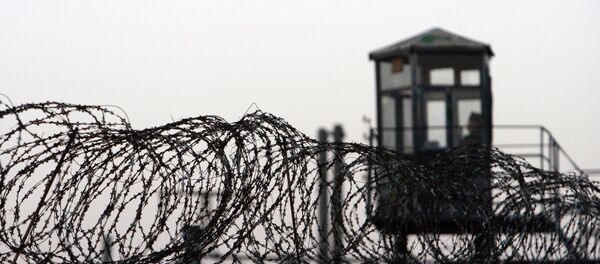Last week, The Guardian published a huge piece on the 2018 World Cup host nation, “revealing” the “darkest sides” of Russia – from nationalist football hooligans and poorly designed stadiums to nostalgic feelings for the good old Soviet times.
The Times’ Moscow correspondent Tom Parfitt, in turn, wrote a piece on how the “Russians hide ‘ugly’ villages” for the World Cup, citing the case of the Glebovsky village near Moscow. He noted that the government had constructed a fence in front of broken-backed buildings near the French team’s training base in order to divert attention from poverty.
READ MORE: Vodka, Snacks, Pickup Rules: Foreign Fans Primed for World Cup in Russia
Parfitt even used the expression “Potemkin village,” alluding to an 18th-century nobleman, Grigory Potemkin, who is believed to have set up fake portable villages to impress Catherine the Great and conceal embarrassing sights and abject poverty in the country from visitors.
But the author seems to ignore the fact that Russia is simply abiding by FIFA’s mandatory requirements, and the fence is on the must-have list. According to standard requirements that every host nation must meet, training grounds must be surrounded by security fencing of more than 2 meters high, “including cladding to prevent climbing or spying.”
What is more interesting is that it was England’s team that requested a six meter high fence in Zelenogorsk to “protect the site from prying eyes.”
READ MORE: Russia to Introduce Increased Security Measures for 2018 FIFA World Cup
This is one of the many scary tales about the upcoming World Cup and comes slightly over a month after a British intelligence expert, Professor Anthony Glees, said that English football players may face a “sex threat” in Russia. He alleged that Russian women could seduce the best English footballers in order to sabotage their win at the Kremlin’s command. According to Glees, Russian authorities could go as far as to use any means, even the so-called “honey-traps,” to undermine England’s chances to win.
READ MORE: English FIFA Fans May Become 'Targets' of Russian Babes — Estonian Intel Chief
Glees’s warning echoed the head of the Estonian foreign intelligence service Mikk Marran’s remarks in an interview with The Times, where he said that FIFA fans should beware of strangers starting impromptu conversations in bars and other public places in Russia, as they might turn out to be undercover agents. Marran noted that not every fan will become a target of spies or Russian women, but “there will be high-level officials visiting Russia, who might be possible targets.”
In an interview with Russia’s Channel Five, the Russian Foreign Ministry’s spokeswoman Maria Zakharova suggested that the main aim of some Western nations is to prevent the holding of the event in Russia.
“I have such an impression that… [some Western countries are only dreaming of] taking the World Cup out of Russia. By all means. Everything is focused on that soccer ball, which, God forbid, will eventually touch a Russian football field,” she said.
Russia will host the FIFA World Cup from June 14 to July 15, 2018, with games taking place in 11 cities across the country, including Moscow, St. Petersburg, Kazan, Kaliningrad, Nizhny Novgorod, Rostov-on-Don, Samara, Saransk, Sochi, Volgograd and Yekaterinburg.




